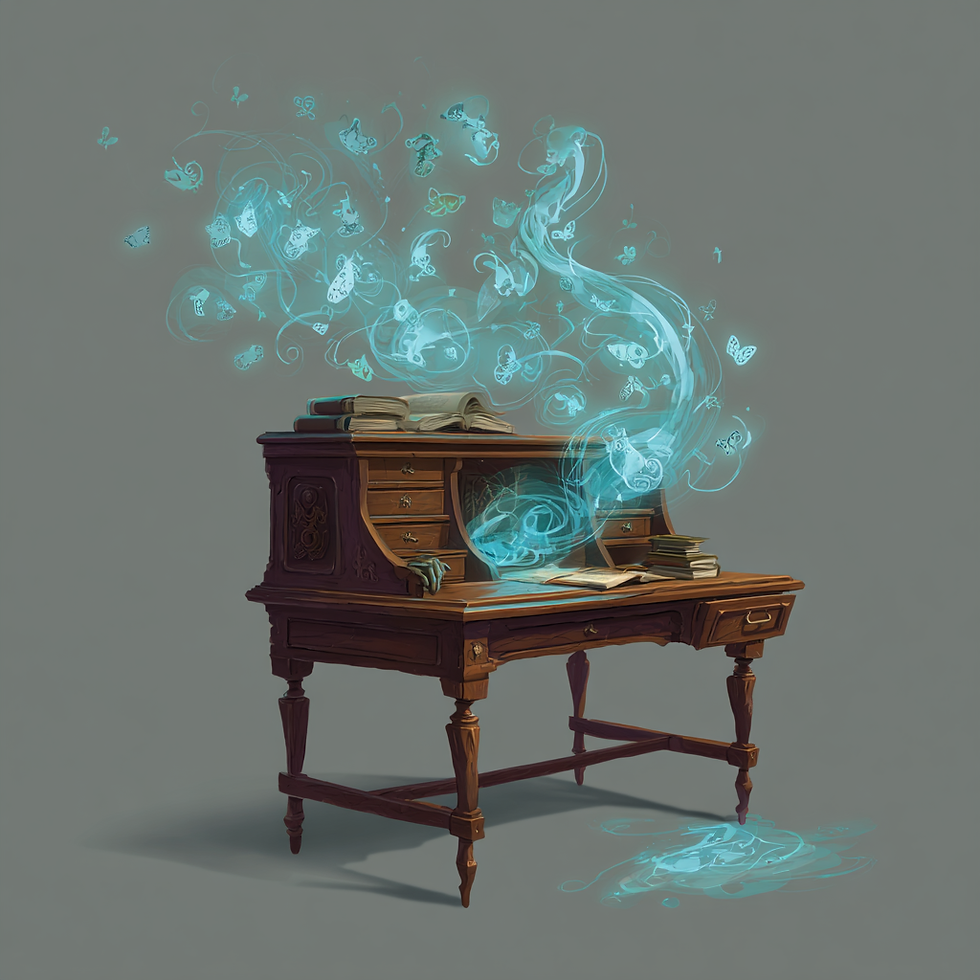AI and Creative Writing
- Gill

- Feb 18, 2023
- 3 min read
Updated: Feb 19, 2023
Artificial intelligence (AI) has been a hot topic in the media recently, and one of the most prominent examples of AI is the language model known as GPT (Generative Pre-trained Transformer). GPT has been making waves in the field of natural language processing and can be used for a wide range of applications, from generating text to answering questions and even translating languages. However, GPT is not the only language model out there.
An alternative to ChatGPT is Google's BARD. I had to smile when I read the name. Of course, Google is not making a connection or comparison with the great William Shakespeare. Heavens! Or are they?
No wonder some creative writers are quaking in their boots, thinking that big tech will put them out of work.
So, what does all of this really mean for writers? Well, the impact of AI on creative writing is still relatively unknown, but there are some potential benefits and drawbacks to consider. On the one hand, AI could be a powerful tool, allowing writers to generate ideas, characters, and even entire plots with ease. AI could also help writers identify common themes and tropes in their writing, allowing them to refine their craft and produce higher-quality work.
There are also concerns that AI could lead to a homogenisation of creative content, as writers may rely too heavily on AI-generated ideas or plots. There is also the concern that AI-generated content could lack the emotional depth and nuance that comes from a human writer's experiences and perspectives. Additionally, there is the fear that AI-generated content could be used to create propaganda or spread disinformation, as we have already seen with the use of deep fakes and other AI-generated content.
In conclusion, AI and its various language models have the potential to revolutionise the field of creative writing, but there are justifiable concerns about the impact on creative content. As with any new technology, it is important to approach AI with caution and to consider both its benefits and drawbacks. Ultimately, the impact of AI on creative writing will depend on how it is used, and the decisions writers and publishers make about incorporating AI-generated content into their work.
I have a confession to make.
The above blog post, excluding the small section in italics, was AI-generated, using ChatGPT.
Not bad eh? If a bit stodgy in style and there is a strange sense of it teetering between high-impact promotion and rational argument, as if uncertain of its own POV. I also had to do some heavy editing for content, grammar and punctuation. So, if I were the AI's teacher, I'd have marked their work at a generous 6 out of 10.
But what if I'd asked it to write something from a family saga? Say a death bed, birth or love scene. Would the AI have got a 6 out of 10 after editing? Somehow I doubt it. For one thing, I think it would struggle with the POV. In an emotional scene, the writer has to take the reader right inside the POV character's head, so they can share the pain and (hopefully) triumph, and I don't think AI is fully capable of that ... yet.
But what do you think?
Would you read AI-generated fiction?
No, absolutely not!
Not keen, but might give it a try.
Yes, all I want is a good read!
If you found this post interesting, look out for the next post coming soon which will continue the topic, delving a bit further into ChatGPT and fiction writing.



Comments